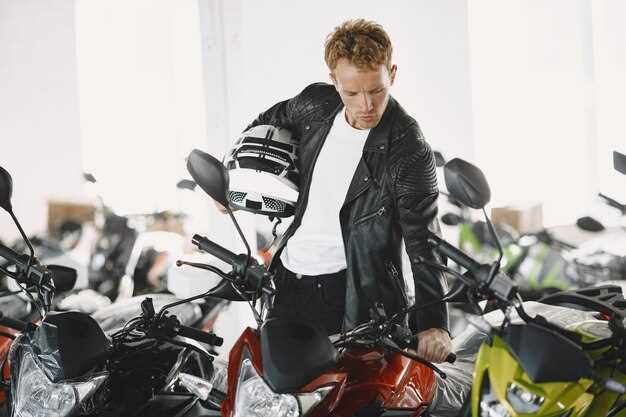
When it comes to purchasing a motorcycle, potential buyers often find themselves weighing the pros and cons of two primary options: buying from a dealer or a private seller. Each option presents unique benefits and challenges that can significantly impact the overall buying experience. Understanding the key differences between these two types of transactions is crucial for making an informed decision.
One of the main advantages of purchasing from a dealer is the peace of mind that comes with their professional expertise. Dealers typically offer a wide selection of new and used motorcycles, often backed by warranties and financing options. This means that buyers can expect a certain level of quality and service, which can be particularly reassuring for those new to motorcycling.
On the other hand, buying from a private seller often presents an opportunity for cost savings. Private sellers may be more willing to negotiate prices, and there are often no dealership fees involved. However, this route can come with increased risks, as buyers may not have the same assurance regarding the condition of the motorcycle. Understanding these distinctions between parties is essential for any prospective motorcycle owner.
Buying Motorcycles: Dealer vs Private Seller Options
When considering the purchase of a motorcycle, potential buyers often face the choice between acquiring from a dealer or opting for a private seller. Each option carries its own set of advantages and disadvantages that can significantly impact the buying experience.
Buying from a dealer typically offers a more streamlined process. Dealers often provide warranties, ensuring that any defects are covered post-purchase. Furthermore, they usually handle all necessary paperwork, including title transfers and registration, which can simplify the transaction. Dealers tend to have a better variety of models, including the latest releases and certified pre-owned options, all of which can be inspected thoroughly.
On the other hand, purchasing from a private seller can result in substantial cost savings. Private listings often feature lower prices compared to dealers, as sellers aim for a quick sale without the overhead costs associated with a dealership. This option allows for more negotiation flexibility, which can lead to an advantageous deal. However, buyers may face challenges such as limited recourse after the sale, as private transactions typically lack warranties.
Another consideration is transparency. Dealers must adhere to regulations, often providing detailed information regarding the motorcycle’s history and condition. In contrast, private sellers might not always disclose crucial facts, requiring buyers to be more vigilant during inspections and inquiries.
Ultimately, the decision between purchasing from a dealer or a private seller hinges on individual preferences and priorities. Those seeking security and convenience may favor dealers, while buyers looking for affordability and negotiation freedom may lean toward private sellers. Whichever option is chosen, thorough research and inspection are vital to ensure a satisfying motorcycle purchase.
Evaluating Costs: Dealer Pricing vs Private Seller Negotiation

When considering purchasing a motorcycle, understanding the costs associated with buying from a dealer versus a private party is essential. Both options come with their own financial implications, which can affect your overall budget.
Dealer pricing typically includes the following components:
- Base Price: This is the manufacturer’s suggested retail price (MSRP), which is often non-negotiable.
- Dealer Fees: Additional costs such as documentation fees, setup fees, and destination charges can significantly increase the total price.
- Financing Options: Dealers may offer financing packages, which can influence the cost through interest rates and loan terms.
- Warranty and Service Packages: Buying from a dealer often includes warranty coverage, which adds to the initial cost but provides security for potential future expenses.
In contrast, buying from a private seller allows for more negotiation flexibility:
- Asking Price: Private sellers typically set their own asking price, often below dealer pricing, providing opportunities for negotiation.
- No Extra Fees: Private transactions usually do not include additional dealer fees, making the overall cost lower.
- Room for Negotiation: Engaging in direct negotiation with a private party can lead to a better deal, depending on the seller’s motivation to sell.
- No Financing Options: Most private sellers will expect cash transactions, which may limit financing options but could also reduce the total price.
Ultimately, evaluating costs between dealer pricing and private seller negotiation involves analyzing both upfront expenses and potential long-term financial implications. Buyers should consider their priorities–whether they prefer a straightforward purchasing experience with a dealer or a potentially lower price with a private party–and make their decision accordingly.
Assessing Warranty and After-Sales Support from Dealers and Individuals

When considering the purchase of a motorcycle, assessing the warranty and after-sales support offered by both dealers and private sellers is crucial. Dealers typically provide structured warranty programs that cover defects and mechanical failures for a specified period. This assurance can significantly reduce the financial burden of unexpected repairs, giving buyers peace of mind.
In addition to warranties, dealers often offer after-sales support that includes servicing, repairs, and access to genuine parts. This can be particularly beneficial for new buyers who may not be familiar with motorcycle maintenance. A dealership’s service department can provide ongoing assistance, ensuring the motorcycle remains in optimal condition.
On the other hand, motorcycles sold by private sellers generally do not come with any warranty, unless explicitly stated. This lack of warranty means that buyers assume all risks associated with potential defects or issues that may arise after the sale. Additionally, private sellers may offer little to no after-sales support, leaving buyers to navigate repairs and maintenance on their own, which can be daunting for those not well-versed in motorcycle mechanics.
When evaluating options, consider the long-term implications of the type of warranty and support available. A dealer may offer higher initial costs but can provide valuable safety nets through warranties and professional service. Conversely, while a private seller may offer a lower price, the absence of warranty and support can lead to higher unforeseen expenses down the line.
Ultimately, the decision should align with your comfort level regarding risk, your experience with motorcycle maintenance, and your long-term plans for ownership. Weighing the benefits and limitations of each option will enable a more informed purchasing choice.
Understanding Documentation and Legal Requirements for Both Purchasing Routes
When considering the purchase of a motorcycle, understanding the necessary documentation and legal requirements is crucial regardless of whether the transaction is conducted with a private party or through a dealer. Each route has its own set of expectations and paperwork that needs to be managed to ensure a smooth transfer of ownership.
For a purchase from a private seller, comprehensive documentation is essential to validate the transaction. Key documents include the original title of the motorcycle, which must be signed over to the new owner. Additionally, a bill of sale is recommended, providing evidence of the transaction details, such as the purchase price, date, and both parties’ contact information. It’s also wise to check for any liens on the motorcycle, as these may complicate the transfer; the seller should provide evidence that any outstanding debts are settled.
In contrast, buying from a dealership generally provides a more streamlined experience concerning documentation. Dealers are typically required to handle most of the paperwork, including title transfers and registration. Buyers should ensure they receive a copy of the purchase agreement, which outlines all terms, warranties, and the financing arrangements if applicable. Dealerships will also assist with converting the title into the new owner’s name, making it simpler for the buyer to navigate legal requirements.
Regardless of the purchase route, buyers must familiarize themselves with local laws governing vehicle registrations and inspections. Each state has different requirements regarding emissions testing and safety inspections, which may need to be completed before the motorcycle can be legally ridden on public roads. Collecting and maintaining accurate records of all documentation is essential for legal protection and ownership verification.
Ultimately, whether engaging with a private party or a dealership, comprehending the necessary documentation and adhering to legal requirements can significantly ease the buying process and protect both parties involved in the transaction.












